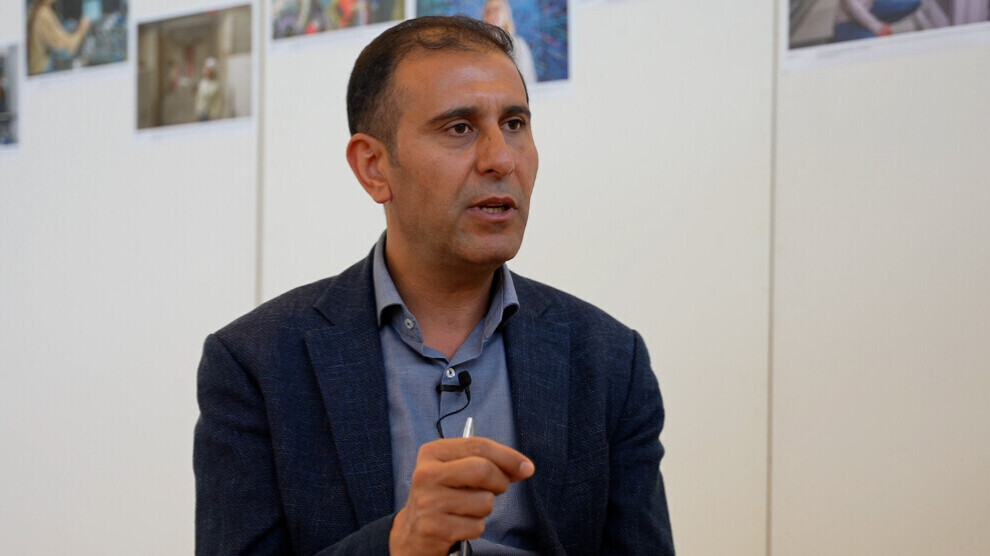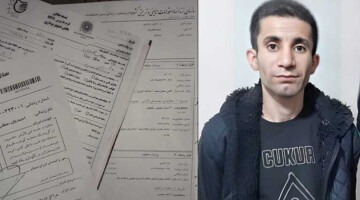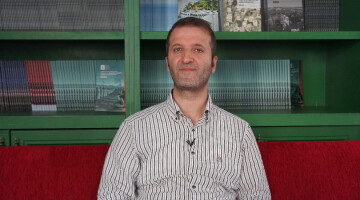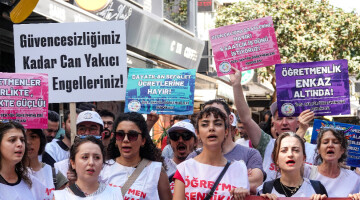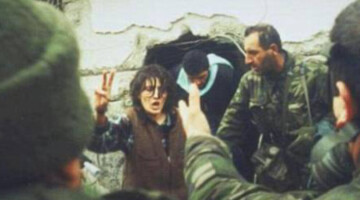The 80th session of the UN Committee against Torture is taking place in the Palais Wilson of the UN office in Geneva. Human rights violations in Turkey are currently being discussed and debated. Reporters from the UN Committee against Torture, representatives of non-governmental organizations who submit reports on Turkey, and a delegation from the regime in Ankara are attending the meetings.
UN Special Rapporteur asks about Öcalan's isolation
The UN Special Rapporteurs against Torture pointed out in their presentations the extent of the violations of rights in the prisons of Turkey and Kurdistan. Special Rapporteur Maeda Naoko, representing Japan, took the floor and in her report addressed in particular the isolation of Kurdish representative Abdullah Öcalan.
In the afternoon session, Fatih Güngör, Deputy Director General for Prisons and Detention Centers at the Ministry of Justice, responded on behalf of the Turkish delegation to the Special Rapporteurs' questions on rights violations in prisons.
Güngör claimed that standards in Turkish prisons were in line with international conventions and argued that, contrary to reports by many non-governmental organizations, there was no isolation in prisons.
Güngör also briefly addressed the question of isolation in Imrali, where Abdullah Öcalan has been held in solitary confinement since 1999 and in prohibited incommunicado detention for more than three years.
Güngör stated that Abdullah Öcalan had been sentenced to life imprisonment without revocation by the State Special Security Courts under Article 125 of the Turkish Penal Code and defended the disciplinary sanctions and the ban on lawyer visits to which Öcalan has long been arbitrarily subjected.
Güngör tried to justify Öcalan's isolation by claiming that he "is currently serving his sentence in Imralı Maximum Security Prison together with three other prisoners. Individuals who do not behave in accordance with the law can be subjected to a number of sanctions by the Prison Administration Supervisory Board. Certain offenses committed in prison can lead to a ban on visits. The Penitentiary Disciplinary Board is responsible for imposing disciplinary measures. Once the decision is made, the prisoner is informed and can appeal to the execution judge. He can even bring the matter to a competent court. Accordingly, family visits for prisoners in Imralı have been suspended for three months. Visits by relatives are therefore prohibited during this period. No objection or complaint has been filed against this decision, which became final and enforceable in April 2024. Visits by lawyers were suspended for six months by court order in May 2024. An appeal was lodged against this decision, but it was rejected in June 2024, so that the decision became final."
Lawyer Bilmez: "The law has been suspended on Imrali"
Ibrahim Bilmez, lawyer for Abdullah Öcalan, told ANF: "Every three months, both Mr. Öcalan and his fellow prisoners on Imralı receive disciplinary punishments. This practice contradicts prison law as well as the law in general. Disciplinary punishments cannot be imposed in this uninterrupted form. Our clients have repeatedly appealed against the punishments imposed. As we know, the justice system does not work at all when it comes to Imrali. These appeals have not led to a single positive answer. As lawyers, we have not been able to obtain a positive decision from the Turkish judiciary on any of our applications for 25 years. So it may be that our clients do not file an application because they have lost trust in the observatories and courts, because justice does not work in their case and because they believe that the result will always be the same. Unfortunately, at the moment, we cannot even know that.”
“We learn the reasons for the sentences from the CPT reports”
The legal team does not even receive the verdicts of the law enforcement authorities and courts. Bilmez explained: “Another important point is that these decisions are not communicated to us, the authorized lawyers. Normally, the procedure has to work like this: we have to be able to find out about the sanctions imposed on our clients in order to be able to appeal. Despite all this, we continue to file applications on behalf of our clients on a presumptive basis. We also appeal under these conditions, because we know that the sentences are always imposed in periods of three months. It is about calling isolation caused by the disciplinary punishments that have been imposed in Imrali Prison every three months for years by its name. We cannot even know the reasons for the punishments directly. We can read them from the CPT reports. For example, prisoners have the right to meet with three people for one hour a week for sports activities. This can be on a volleyball court one time and on a basketball court another time. We do not even know whether this right is recognized at the moment, but the reasoning behind one of the punishments reported in the reports was as follows: sports were played for 45 minutes and the last 15 minutes were spent talking while running. That says it all. Are you seriously being accused of not playing volleyball for 60 minutes but talking for the last 15 minutes? So the statements made by the ministry official to the UN are not true. It is just an attempt to cover up this illegal practice."

